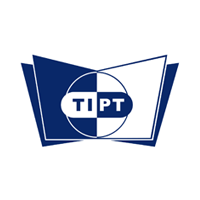
The United-States-Mexico-Canada Agreement, or the USMCA, is a free trade agreement between the three neighbouring countries, to replace the North American Free Trade Agreement (NAFTA), which was in place for 25 years. The USMCA introduces new regulations on biologics, affecting data protection and the price of medicine, as well as expanding on the definition of biologics themselves. These processes take a long time, with the agreement signed in November 2018 but the ratification process only beginning June 2019, with Mexico as the first country to ratify it. Read on for what you should know about the USMCA if you’re studying regulatory affairs.
The USMCA Definition of Biologics for Students in Regulatory Affairs Training
The USMCA broadens the scope of the definition of biologics. As you may already know if you’ve begun your training, biologics are large molecule drugs created through intricate biological processes. They differ from drugs created through chemical synthesis that are well-defined in structure and often developed at a lower cost.

The USMCA indicates that biologics are products that contain viruses, therapeutic serums, toxins, antitoxins, vaccines, blood or blood components and derivatives, or allergenic products or proteins for use in treatment, prevention, or cure of a disease or condition. It also includes proteins that are chemically synthesized polypeptides.
The Data Protection term under the USMCA is Extended
With data protection, a patented biologic receives additional restrictions on the ability of other pharmaceutical companies to use their clinical trials—which you will become familiar with when you attend pharmaceutical college—as well as other relevant data to qualify for market release. This allows them to make biosimilars, or copy drugs of the originals.

The USMCA increases this time period for Canadian companies from 8 to a minimum of 10 years. The added protection for companies is a point of contention. Pharmaceutical companies spend large budgets on research and development for biologics, as their processes are more expensive. Since these tests are so expensive, companies don’t want to give their data away for free. On the other hand, the presence of biosimilar drugs does give more people access to affordable treatment and this is an understandable priority for many.
Grads of Pharmaceutical College may be Interested in the Effect on Cost
Biologic drugs make up more than 30 per cent of the world’s current drug development, underscoring their importance in the industry and their effect on the economy. Since the USMCA increases the amount of time that companies have protection for intellectual property, it allows for them to have a monopoly on the market with respect to the protected drug. This gives room for the price of medication to be higher, making treatments less accessible to the people who need them.
In regulatory affairs training, you may notice that there are multiple sides to a lot of regulatory issues. There is an argument that looser restrictions on intellectual property would lower incentives for innovation in biologics, effectively slowing down progress and bringing less treatments into existence. However, there is a contrary argument that both biologics and biosimilar drugs hold the same level of time sensitivity and thus are equally important.
Are you interested in a regulatory affairs diploma?
Contact Toronto Institute of Pharmaceutical Technology for more information.
